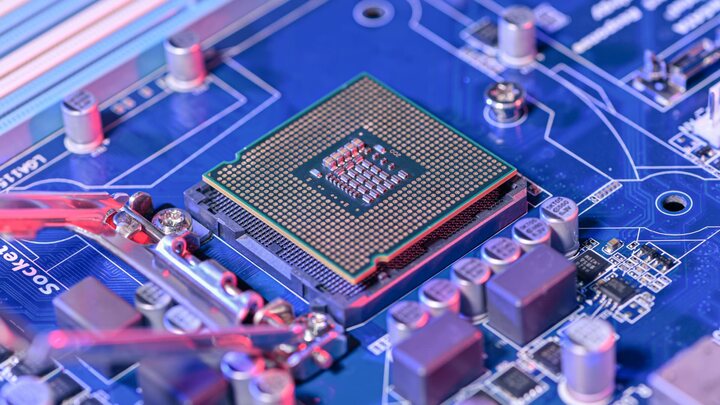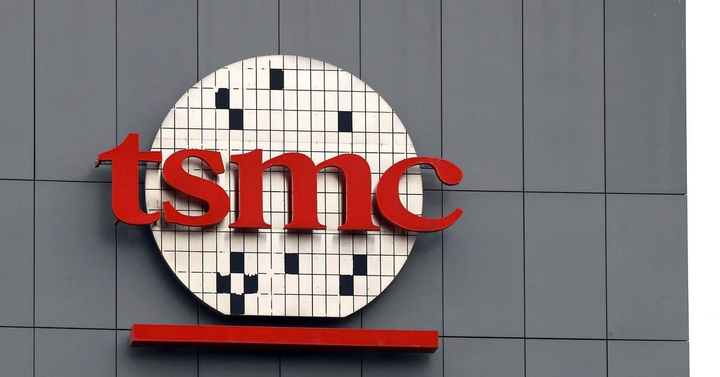Uber to Acquire Delivery Hero’s Foodpanda Business in Taiwan for $950 Million

I am a law graduate from NLU Lucknow. I have a flair for creative writing and hence in my free time work as a freelance content writer.

I am a law graduate from NLU Lucknow. I have a flair for creative writing and hence in my free time work as a freelance content writer.
As the Biden administration seeks to revive the local semiconductor industry, US sales of Taiwanese chip-making gear reached an all-new high record in March. According to information from the Ministry of Finance in Taiwan, the country which is a worldwide hub for silicon manufacturing innovations, witnessed a 42.6 percent increase in its chipmaking equipment exports to the US in March compared to the same month last year, setting an all-time high record of 71.3 million USD (RM314.01 million). However, trade in China went down 33.7 percent, marking the tenth consecutive month of a downward spiral.

Taiwan is a key factor in the worldwide supply chain and residence of Taiwan Semiconductor Manufacturing Co (TSMC) as well as numerous additional key players in the chip industry.
Also Read: Why is Samsung’s cut in chip production good news for industry?
United States officials took action to establish more sophisticated chipmaking within American borders because of concerns over over-dependence on Taiwan island, which China regards as a portion of its own country.
Due to financial aid and assistance from the state and municipal governments, TSMC is building two fabrication facilities in Arizona.
The chip supply chain is beginning to split apart as a result of US measures to restrict China’s access to essential semiconductor equipment, know-how, and goods. One indication of this is the decline in Taiwan’s shipments of semiconductor machines to China.
A month back, Japan also unveiled intentions for new export limits on chip manufacturing equipment, clearly aiming its limitations at China which is the second-largest economy in the world.
Japan’s move to collaborate with the United States and the Netherlands in banning chip manufacturing equipment exports to China has given the allies strong tools to use in the expanding technological conflict.
The commerce ministry of Japan announced this week that beginning in July, exports of 23 different types of chip technology will require government authorization.
This has an impact on a wide range of businesses, which includes Nikon Corp., Tokyo Electron Ltd., and Screen Holdings Co., which have played a key role in China’s efforts to establish a local chip sector.
“Japan joining the export curbs will do great harm to China’s ability to make and develop chips smaller than 16 nanometers,” said Akira Minamikawa, an analyst at research company Omdia.
Source: bloomberg.com
Also Read: U.S. set to further tighten chipmaking exports to China
American businesses like Applied Materials Inc. were immediately impacted by the regulations when the Biden administration published its extensive limits on chip-related shipments to China in October.
Following the announcement that both the Netherlands along with Japan has joined the China restriction, all the main nations that manufacture chipmaking gear are taking part. The most cutting-edge equipment, involving those that produce logic chips at 16 nm or with more complex geometries, are covered by the constraints.

I am a student pursuing my bachelor’s in information technology. I have a interest in writing so, I am working a freelance content writer because I enjoy writing. I also write poetries. I believe in the quote by anne frank “paper has more patience than person
TSMC is trying to capitalize on the current trend of technical job cuts, which have resulted in the dismissals of several thousand engineers.
“To support the company’s business growth and technology development, TSMC is planning to recruit more than 6,000 new employees in Taiwan including engineers and production line operators in Hsinchu, Taichung, Tainan and Kaohsiung in 2023,” the chip biz told The Register.
Source: theregister.com

To maintain the wafers running, the corporation states that it intends to hire up to 6,000 engineers, which is about a 10 percent rise in staff numbers. According to Reuters, TSMC is not only searching for pricey skillsets, but also engineers with degrees varying from a two years degree to a doctoral degree in electrical engineering or software development.
Also Read: Germany planning to ban Huawei, ZTE from parts of 5G networks
The catch is that you may be required to emigrate to Taiwan. The provided local wage is substantially lower compared to what you’d anticipate finding in the United States.
According to TSMC, the average wage for a fresh engineer is expected to be approximately NT$2 million, or around $65,500 per annum, but it’s interesting to note that the living expenses in Taiwan are significantly lower. TMSC is also rapidly expanding in the United States, but it will be some time before the new fabs are operational.
“TSMC is recruiting broadly from both experienced professionals and first-time job seekers with backgrounds in electronics, electrical engineering, optoelectronics, mechanical engineering, physics, chemistry, chemical engineering, industrial engineering, financial, accounting, management, human resources, and related fields to come on board. TSMC is also recruiting production line operators. People with senior high school (inclusive) or above including college graduates are welcome to join. The company is open to hiring foreign engineers.”
Source: theregister.com
The hiring spree emanates as the semiconductor industry in its entirety struggles with a slowing global economy and falling chip demand, especially in distribution channels.
Also Read: Twitter Cuts More Engineering, and Product Jobs to Curb Costs
These market factors have had a significant impact on many chipmakers. Samsung which is TSMC’s main competitor in the foundry industry has seen its sales fall to 3.4 billion USD, a 69 percent drop from the previous year in January, whilst also earnings fell 8 percent to 57.3 billion USD.
In contrast, TSMC has carefully eliminated controversy thus far. TSMC confirmed Q4 revenues of 19.93 billion USD which is a 26.7 percent rise compared to the previous year, whereas others reported operational losses and decreasing revenues.

I am a student pursuing my bachelor’s in information technology. I have a interest in writing so, I am working a freelance content writer because I enjoy writing. I also write poetries. I believe in the quote by anne frank “paper has more patience than person